【SwiftUI实战】一个简单的天气显示界面
Kwok 发表于:2021-03-26 17:26:32 点击:87 评论: 0
本示例的主要知识点是利用ZStack重叠特点做一个代码渐变背影。
先看示例图:
1、白天模式

2、夜间模式

1、View的代码如下:
import SwiftUI
struct ContentView: View {
@ObservedObject var WeartherDay:Data = Data(
[
WeartherData(week: "周一", weartherICO: "cloud.sun.fill", temperature: 20, id: 1),
WeartherData(week: "周二", weartherICO: "sun.max.fill", temperature: 21, id: 2),
WeartherData(week: "周三", weartherICO: "cloud.hail.fill", temperature: 19, id: 3),
WeartherData(week: "周四", weartherICO: "cloud.sun.bolt.fill", temperature: 18, id: 4),
WeartherData(week: "周五", weartherICO: "wind", temperature: 17, id: 5)
])
@State var isNight:Bool = false
var body: some View {
ZStack{
BodyBackgoundView(isNight: $isNight)//背影颜色
VStack{
CityTextView(cityName: "中国 ・ 重庆市")//城市名字
VStack{
//城市天气视图
MainCityWeartherVie(imageName:"cloud.sun.fill",temperature: 21)
}
.padding(.bottom,40)
HStack(spacing:30){
ForEach(WeartherDay.weartherData){ data in
WeartherDayView(dayOfWeek: data.week,
imageName:data.weartherICO,
temperature: data.temperature)
}
}
Spacer()
Button(action: {
isNight.toggle()
}) {
Text(isNight ? "白天模式" : "夜间模式")
.font(.system(size: 20,weight:.bold))
.foregroundColor(.blue)
.frame(width: 280, height: 60)
.background(Color.white)
.cornerRadius(10)
}
Spacer()
}
}
}
}
struct WeartherDayView:View {
var dayOfWeek:String
var imageName:String
var temperature:Int
var body: some View{
VStack{
Text(dayOfWeek)
.font(.system(size: 18, weight: .medium))
.foregroundColor(.white)
Image(systemName: imageName)
.renderingMode(.original) //呈现方式(.原始),如果图标有颜色则显示
.resizable() //布满
.aspectRatio(contentMode: .fit) //按比缩放
.frame(width: 50, height: 50)
.padding(.vertical)
Text("(temperature)℃")
.font(.system(size: 16, weight: .medium))
.foregroundColor(.white)
}
}
}
//城市主天气视图
struct MainCityWeartherVie:View {
var imageName:String
var temperature:Int
var body: some View{
VStack(spacing:10) {
Image(systemName: imageName)
.renderingMode(.original) //呈现方式(.原始),如果图标有颜色则显示
.resizable() //布满
.aspectRatio(contentMode: .fit) //按比缩放
.frame(width: 180, height: 180)
Text("(temperature) ℃")
.font(.system(size: 60, weight: .medium))
.foregroundColor(.white)
}
}
}
//页面背影设置
struct BodyBackgoundView:View {
@Binding var isNight:Bool
var body: some View{
//LinearGradient渐变沿着一个方向渐变颜色,起始点和结束点为数组可定义多个颜色
LinearGradient(gradient: Gradient(colors: [isNight ? .black : .blue, isNight ? .gray : Color("lightBlue")]), startPoint: .top, endPoint: .bottom) //lightBlue 是自己在Assets里调用的颜色。R:0.678 G:1 B:0.988
.edgesIgnoringSafeArea(.all)//更改视图的建议区域,以扩展到屏幕的安全区域之外。
.animation(.easeInOut(duration: 1.0))
.id(isNight ? ".black" : ".blue")//ID改变才能触发过度效果
.transition(rollTransition)//应用自定义过度
}
//自己定义一个向上滚动的过度效果
var rollTransition:AnyTransition{
AnyTransition.asymmetric(
insertion: .offset(x: 0, y: 9000),
removal: .offset(x: 0, y: -9000)
)
}
}
//城市名字
struct CityTextView:View {
var cityName:String
var body: some View{
Text(cityName)
//设置文字属性
.font(.system(size: 32, weight: .bold, design: .default))
.foregroundColor(.white)
.padding()
}
}
struct ContentView_Previews: PreviewProvider {
static var previews: some View {
ContentView()
}
}
2、Model的代码:
import Foundation
struct WeartherData:Identifiable {
var week:String
var weartherICO:String
var temperature:Int
var id:Int
}3、ViewModel的代码:
import Foundation
class Data : ObservableObject{
@Published var weartherData:[WeartherData]
init(_ data:[WeartherData]) {
self.weartherData = []
for item in data{
self.weartherData.append(WeartherData(week: item.week, weartherICO: item.weartherICO, temperature: item.temperature, id: item.id))
}
}
}除非注明,网络人的文章均为原创,转载请以链接形式标明本文地址:https://www.55mx.com/post/110
本站推荐阅读
热门点击文章
- 【Laravel经验】强大的Model应该这样用阅读:515 评论:0
- 各大门户网站网页变灰的代码阅读:514 评论:0
- 在城市体面的“流浪”指北阅读:493 评论:0
- 利用程序计算小学3年级的奥数题 2,4,5,7,11,13,23,25,( ),( )阅读:457 评论:0
- mysql 14001错误 could not start the service mysql阅读:437 评论:0
- 【Laravel实战】Ajax验证captcha 验证码阅读:435 评论:0
- 家庭云(NAS)最简单的组建技术阅读:424 评论:1
- 测试阿里云服务器的1M带宽能支持多少人在线阅读:418 评论:0
- “无奸不商”的原来意思“无尖不商”,可现实却是“无贱不商”阅读:418 评论:0
- 通过指令3秒查出你的男(女)朋友用手机在做什么阅读:418 评论:0
- 一个可以防止图片木马的PHP上传类阅读:418 评论:0
- PHP中实用的常量和系统全局变量阅读:417 评论:0
- 通过Kcptun给Shadowsocks加速,能跑满你的带宽阅读:417 评论:0
- 让你的网站每天更新快照并实时收录并不难!阅读:415 评论:0
- 一个比较好用的JS原生封装Ajax.js,使用方法与jQuery一样阅读:404 评论:0


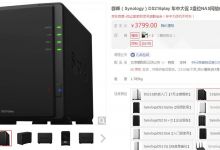
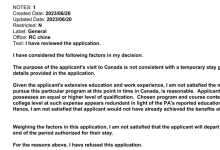

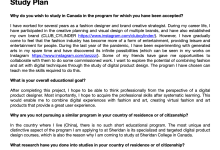
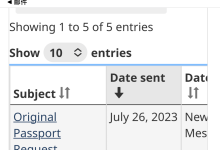
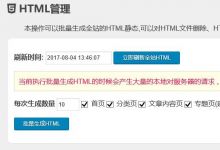
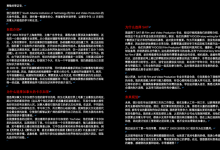
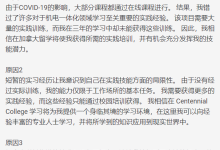
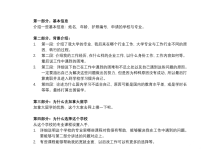

《【SwiftUI实战】一个简单的天气显示界面》的网友评论(0)